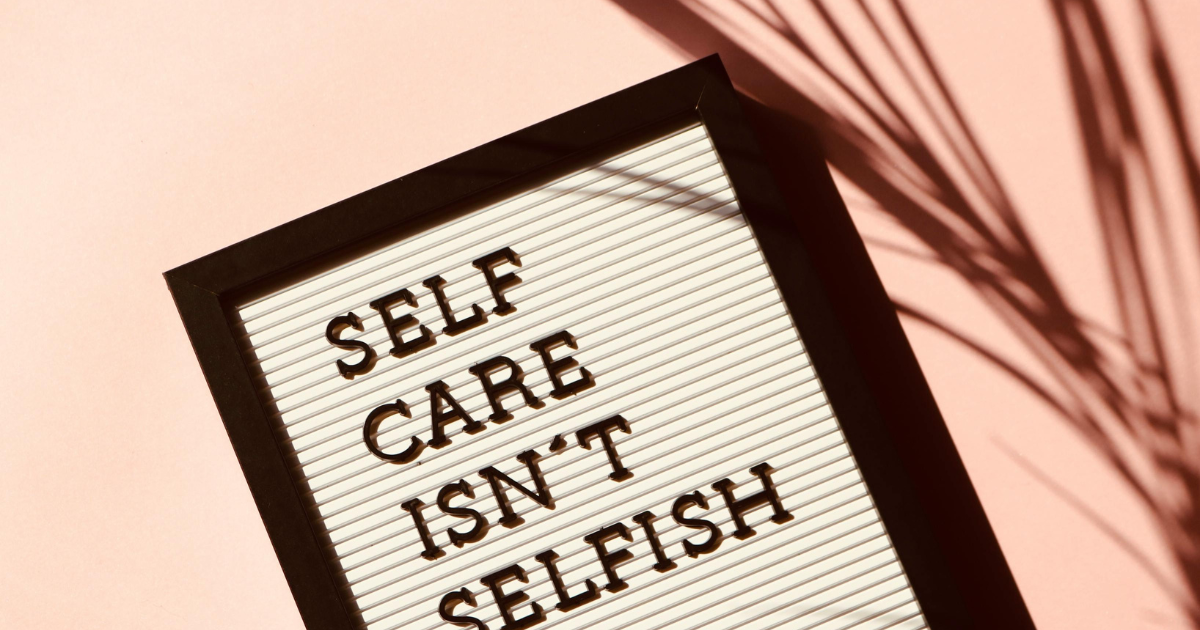In our fast-paced, high-stress world, finding balance can sometimes feel like an impossible task. If you’re dealing with addiction or struggling with mental health issues, you’re not alone. But there’s hope and help available, and it comes in the form of mindfulness and meditation. Mindfulness-based stress reduction (MBSR) programs have been widely recognized as effective tools in helping individuals manage the challenges of daily life, particularly for those dealing with addiction and chronic pain.
Essential Takeaways
- Powerful Tools for Recovery: Mindfulness and meditation enhance self-awareness, emotional balance, and resilience. Mindfulness-based cognitive therapy (MBCT) and mindfulness-based therapy are effective interventions for treating conditions like depression and anxiety.
- Daily Practice Benefits: Integrating mindfulness and meditation into your daily routine can greatly improve your well-being. Start small and build gradually for the best results. The benefits of mindfulness meditation extend to improved cognitive function and emotional regulation.
- Abundant Resources: Numerous resources, including apps, online courses, and books, are available to support and enrich your mindfulness meditation practice. Explore these tools to stay motivated and deepen your practice.
These ancient practices have found their way into modern therapeutic settings, proving to be powerful tools for managing both addiction and mental health challenges. Mindfulness-based approaches such as MBSR and MBCT have been shown to reduce depression symptoms and improve the overall quality of life. Let’s dive into how these practices can be a game-changer for you or someone you care about.
Tennessee Behavioral Health
Understanding Mindfulness and Meditation
What is Mindfulness?
Mindfulness is about being fully present in the moment. Imagine sitting quietly, and instead of your mind racing through your to-do list or replaying yesterday’s arguments, you’re just focusing on the here and now. That’s mindfulness. It’s the practice of paying attention to your thoughts, feelings, and physical sensations without judgment.
Mindfulness has its roots in ancient Buddhist traditions, where it was practiced as a way to achieve spiritual enlightenment. Nowadays, mindfulness is embraced by people from all walks of life as a secular practice for improving well-being. The aim of mindfulness is to cultivate a sense of presence and awareness, which can significantly reduce stress and improve mental health.
Mindfulness vs. Other Practices
While mindfulness might sound similar to relaxation techniques or yoga, it has its own distinct focus. Mindfulness-based practices are specifically designed to cultivate awareness and acceptance of the present moment. Formal meditation practices, such as body scanning and mindful breathing, are core components of mindfulness training. Jon Kabat-Zinn, a pioneer in the field, developed the mindfulness-based stress reduction program, which integrates these techniques into daily practice.
What is Meditation?
Meditation is a broad term that covers various practices aimed at cultivating mental clarity, emotional stability, and a deep sense of inner peace. At its core, meditation involves focusing the mind on a specific object, thought, or sensation, often in a quiet and comfortable setting.
There are many types of meditation, each with its own focus and techniques. Transcendental meditation, for example, involves the repetition of a mantra to achieve a state of relaxed awareness. Other meditation practices focus on the breath, body sensations, or loving-kindness towards oneself and others.
Common Types of Meditation:
- Concentration Meditation: Focuses on a single point of reference, such as your breath or a candle flame. This practice helps enhance your ability to concentrate and reduce mental distractions.
- Loving-Kindness Meditation (Metta): Involves repeating phrases like “May I be happy” or “May you be at peace” to cultivate compassion and kindness towards oneself and others.
- Body Scan Meditation: A technique where you focus on different parts of your body, noticing sensations and releasing tension. This practice can be particularly helpful in increasing body awareness and promoting relaxation.
New Content Added
Mindfulness-based practices like body scan meditation are effective in managing chronic pain and improving the quality of life for individuals with substance use disorders. These practices not only enhance self-awareness but also help in addressing underlying emotional issues related to addiction.
The Benefits of Mindfulness and Meditation for Mental Health
Managing Anxiety and Stress
If you’re feeling overwhelmed, anxious, or stressed, mindfulness and meditation can offer relief. These practices help you develop a greater awareness of your thoughts and feelings, which can make it easier to manage stress. Mindfulness-based stress reduction training has been particularly effective in reducing acute pain and psychological symptoms associated with anxiety.
Reducing Anxiety
Mindfulness helps in reducing anxiety by allowing you to observe your anxious thoughts without getting caught up in them. When you practice mindfulness, you learn to view your thoughts as temporary and not necessarily reflective of reality. For example, instead of spiraling into worry about a potential future event, mindfulness encourages you to focus on the present moment and what’s happening right now. Techniques like mindful breathing and progressive muscle relaxation can significantly reduce symptoms of anxiety.
New Content Added
Mindfulness-based interventions are designed to address various psychiatric disorders, including anxiety and depression. These interventions often include deep breathing exercises and other breathing methods that help regulate brain activity and reduce emotional reactivity.
Stress Reduction Techniques
Stress reduction through mindfulness and meditation often involves simple practices that you can incorporate into your daily routine. For instance, taking a few minutes each day to practice deep breathing or progressive muscle relaxation can help alleviate physical and emotional stress. Mindfulness-Based Stress Reduction (MBSR) is a structured program that combines mindfulness meditation and yoga to help individuals manage stress and improve overall well-being.
Enhancing Emotional Regulation
Emotional regulation is key to mental health. When you’re emotionally balanced, you’re better equipped to handle life’s ups and downs. Mindfulness helps you become more aware of your emotional responses and manage them more effectively.
Understanding Emotional Regulation
Emotional regulation involves recognizing and managing your emotions in a healthy way. Mindfulness-based approaches can increase your awareness of your emotional states and help you respond to them with greater clarity and calmness. For example, by practicing mindfulness, you might notice when you’re starting to feel frustrated or upset, and you can use techniques like deep breathing or mindful observation to manage those emotions before they escalate.
Techniques for Emotional Balance
Mindfulness exercises for emotional balance include practices like observing your feelings without judgment and practicing self-compassion. For instance, you might sit quietly and simply notice what you’re feeling—whether it’s anger, sadness, or joy—without trying to change it. This practice helps you accept your emotions as they are and prevents you from reacting impulsively. Mindfulness-based cognitive therapy (MBCT) is particularly effective in improving cognitive flexibility and reducing emotional reactivity.
Tennessee Behavioral Health
Improving Focus and Cognitive Function
Mindfulness and meditation can also boost cognitive function. By practicing mindfulness, you enhance your ability to concentrate, remember, and solve problems. The beneficial effects of these practices extend to improving brain regions associated with attention and memory.
Boosting Cognitive Function
Regular mindfulness practice has been shown to improve attention, memory, and problem-solving skills. For example, mindfulness meditation can increase the density of gray matter in the brain, which is associated with better cognitive function and emotional regulation. Practices like mindful listening, where you focus fully on what someone is saying without distraction, can also improve your ability to concentrate and remember information.
New Content Added
Studies published in the Journal of Consulting and Clinical Psychology and Clinical Psychology Review highlight the positive impact of mindfulness meditation on cognitive flexibility and emotional intelligence. These benefits of mindfulness meditation make it a valuable tool in both mental health treatment and daily life.
Mindfulness Exercises for Focus
To enhance focus, try mindfulness exercises like single-tasking, where you concentrate on one task at a time without multitasking. Another useful practice is mindful listening, where you pay close attention to the sounds around you or to someone speaking, without letting your mind wander. These exercises help train your brain to stay engaged and attentive.
The Role of Mindfulness and Meditation in Addiction Recovery
Reducing Cravings and Relapse Risk
One of the significant challenges in addiction recovery is managing cravings and avoiding relapse. Mindfulness and meditation can be effective tools for handling these challenges. Mindfulness-Based Relapse Prevention (MBRP) is an evidence-based approach that helps individuals maintain their recovery by developing mindfulness skills to cope with cravings.
Understanding Cravings
Cravings are intense urges to use a substance, often triggered by environmental cues or emotional states. Mindfulness helps by allowing you to observe these cravings without acting on them. Instead of giving in to the urge, you can use mindfulness to acknowledge the craving, understand that it’s temporary, and let it pass without judgment.
Mindfulness Strategies for Cravings
Techniques such as body scan meditations and mindful breathing can help manage cravings. For instance, if you feel a craving coming on, you might use a body scan meditation to focus on physical sensations and observe how the craving affects your body. Mindful breathing, where you focus on your breath and let go of distractions, can also help you stay grounded and resist the urge to use.
New Content Added
Mindfulness-based interventions are increasingly being used to treat substance use disorders by addressing both the psychological and physical health aspects of addiction. These interventions have been shown to reduce drug use and improve overall quality of life.
Building Emotional Resilience
Mindfulness and meditation also build emotional resilience, which is crucial for long-term recovery. Emotional resilience is the ability to bounce back from setbacks and cope with challenges. By regularly practicing mindfulness, you develop greater self-awareness and emotional stability, making it easier to navigate the ups and downs of recovery.
Developing Emotional Resilience
Emotional resilience involves being able to recover quickly from emotional setbacks. Mindfulness helps build this resilience by fostering a greater awareness of your emotions and the ability to manage them effectively. For example, by practicing mindfulness, you might learn to recognize when you’re feeling frustrated or discouraged and use strategies like self-compassion to navigate those feelings.
New Content Added
Mindfulness-based practices have also been shown to enhance self-efficacy in individuals in recovery, which is a key factor in maintaining long-term sobriety. By empowering individuals to take control of their recovery process, mindfulness can help foster a sense of agency and commitment to a healthier lifestyle.
Starting Your Mindfulness and Meditation Journey
Practical Tips for Incorporating Mindfulness into Your Daily Life
Starting your mindfulness and meditation journey doesn’t have to be overwhelming. Here are some practical tips to help you get started:
- Start Small: Begin with just a few minutes of mindfulness practice each day. Gradually increase the time as you become more comfortable.
- Set a Routine: Try to practice at the same time each day to create a habit. Consistency is key to building your practice.
- Use Guided Meditations: There are many apps and online resources available that offer guided meditations, making it easier to start.
- Practice Mindfulness in Daily Activities: Incorporate mindfulness into everyday tasks like eating, walking, or even brushing your teeth. Pay attention to your senses and the present moment.
- Be Patient with Yourself: Mindfulness is a skill that takes time to develop. Be gentle with yourself as you learn and grow.
Resources for Mindfulness and Meditation
- Apps: Explore apps like Headspace, Calm, or Insight Timer for guided meditations and mindfulness exercises.
- Books: Consider reading books on mindfulness, such as “Wherever You Go, There You Are” by Jon Kabat-Zinn or “The Miracle of Mindfulness” by Thich Nhat Hanh.
- Online Courses: Look for online courses on platforms like Coursera or Udemy that focus on mindfulness and meditation techniques.
Tennessee Behavioral Health
Conclusion
Mindfulness and meditation are powerful tools that can help you manage both addiction and mental health challenges. By cultivating awareness and acceptance, these practices promote emotional balance, resilience, and improved cognitive function. Whether you’re new to mindfulness or looking to deepen your practice, the journey begins with a single step. Start today, and experience the transformative power of mindfulness in your life.







